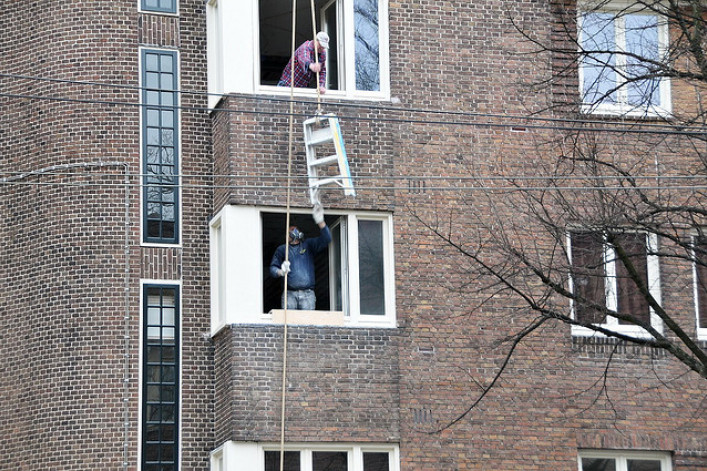How to get the best contractor bids for your apartment reno

Q. I'm planning to renovate my Upper East Side apartment, and I've gotten a few referrals for contractors. The next step is to have them bid on the job, but I'm not sure how it works. How do I make sure I get the best bids? What should I look for when they come in?
Getting the right contractors to quote for your project is the single most important component of getting a good, realistic bid. After all, just because your contractor did an expert job with your bathroom floors doesn’t mean he’s the guy for your kitchen countertops.
Assuming you have the right contractors on your shortlist, the best way to get results is to prepare a detailed project brief that lays out what you want to do and how much you plan to spend, essentially giving the bidders a template to work from.
A careful brief shows your commitment to the project, which is something good contractors appreciate in clients, and it provides a handy guide when you’re interviewing candidates and doing a walk-through of your space.
How to prepare the brief:
Your project brief should include basic information such as your name, address, the type of property, the desired start date and your total budget.
You’ll also want to create a material sheet for each room or space you want to remodel, referencing the actual fixtures and fittings that you have in mind, whether with magazine pictures or a link to a Pinterest scrapbook.
Items in the material sheet can look like this: "guest bathroom 1x Kohler faucet @ $500 (add picture), 1 x showerhead @ 100," and so on. It should list appliances, lighting, cabinetry and any other components you plan to add to your home.
Include a budget range for your materials to guard against scope creep—if you fall in love with fancier stuff once your work’s begun, having cold, hard numbers in the original brief will help you keep a cool head. Also remember that if you don’t do a materials sheet, your contractor will—and you’ll be handing over some control of the details.
Additionally, the easiest way to make your brief as comprehensive as possible is to include a scrapbook of floor plans, photographs, and any relevant drawings that show your space and the work you want done.
Start with the floor plan, and walk through the rooms where you plan to do work, writing down and describing every single task you want done. Start with a verb—for example, “remove existing light fixture,” “install doors.” Name the rooms on the floor plan—“Tom’s bedroom,” “guest bathroom”—to make it easier to communicate with the contractor once the job gets underway.
What does a good bid look like?
Good contractors spend time developing bids that detail labor and material costs as well as soft costs, such as permit processing fees. A thorough bid will mirror your brief, and it will be granular, specific and realistic.
On a basic level, the bid should include:
- the overall cost of the project
- a start date
- the duration of the job
- the type of contract. Contractors use different contracts--sometimes their own and sometimes a standard form from a trade group like the American Institute of Architects.
- a granular budget. Look out for line items that include the dollar amounts for labor, materials, taxes, permit processing and insurance surcharges. The materials quoted in the budget should reference the ones included in your brief. Note that some contractors include their overhead or profit as a separate line item. If this is not specified, feel free to inquire. It should be around 15 percent for kitchen and bathroom jobs, but again this depends on the size and duration of the project and the type of contractor. Look out for "exclusions" as some contractors may not include design or permit processing fees in their quotes.
- the expiration date. Prices for materials and labor change constantly; the standard expiration date is 30 days.
- a list of contractor licenses and insurances. You may want to ask for a copy of their licenses and insurances at this point too.
- any drawings or concepts that the contractor created (though whether you get these will depend on the type and size of project you are undertaking)
But you’re also looking for:
- how closely the bid matches your brief
- a milestone-based payment proposal. This can include a reasonable deposit to cover materials and labor to get started, followed by payments once the contractor hits certain goals in the job
- a detailed timeframe linked to milestones
- feedback on whether the materials you want are available or knowledge of similar products that could be used to replace them
- good chemistry. You will spend a lot of time with the contractor and his or her crew.
Related:
Fraser Patterson is a former general contractor and the founder of Bolster, a NYC-based company that connects homeowners with contractors--and provides a guarantee from an insurer that renovations will be completed on time and on budget. For more information, visit http://www.getbolster.com. To ask a renovation question, click here.























